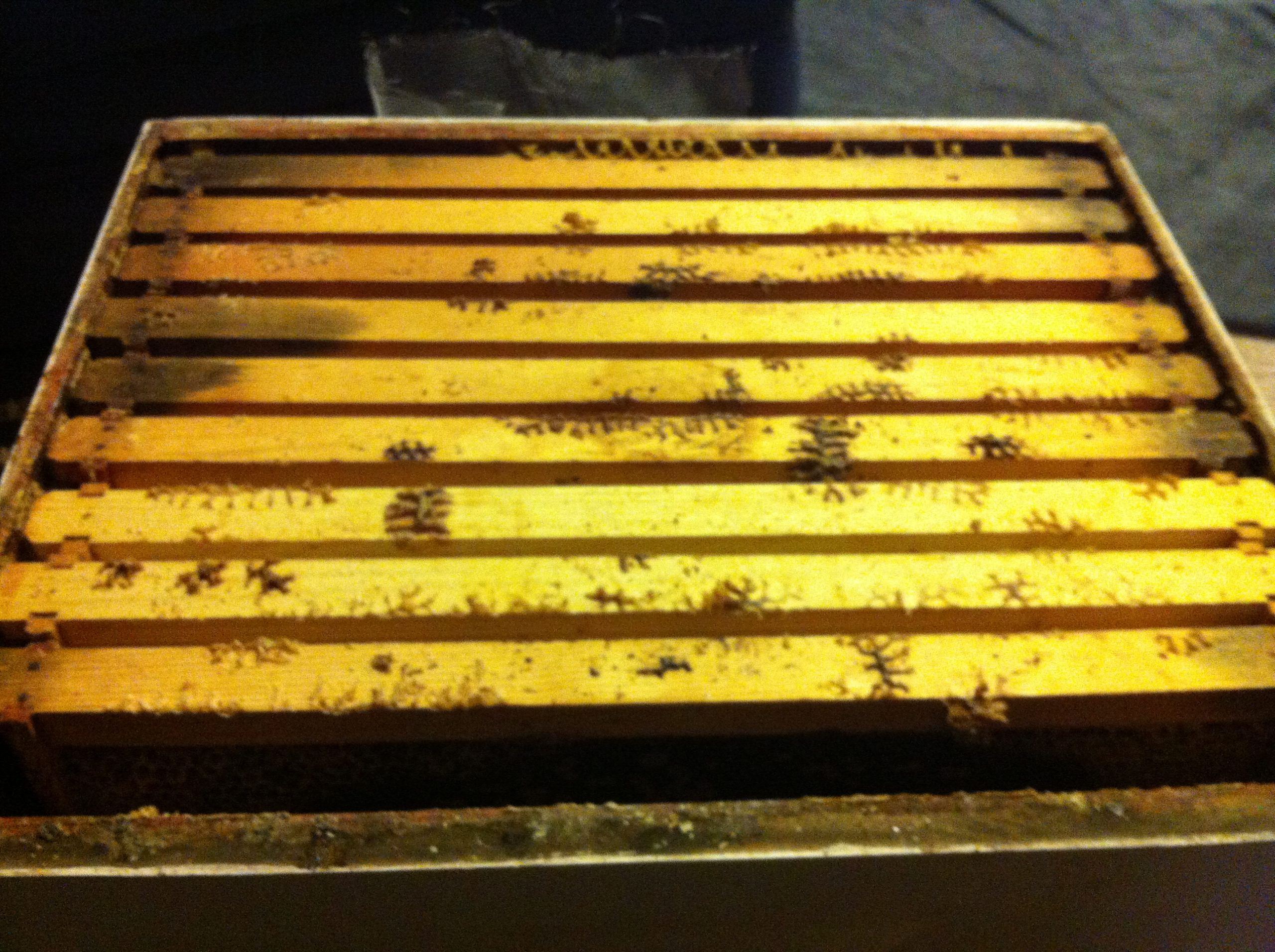
Remember? Hive 3 began as one of our first hives. It was from a cut-out under a children’s playground set. This would have been their second Winter.
As long as they (Hive 8) survive their first Winter, Hive 3 genetics will live on. We made a split from Hive 3 last Spring.
Looking back, I should have had a closer eye (or four) on these ladies, but it seemed they were doing fine. However, I should have peeked in more frequently in the Fall.
Once I realized that the colony was dead, I began going through it (inspecting each frame, looking for a cluster of dead bees, looking for mite feces, signs of disease, etc.), ultimately trying to figure out why the colony died.
Looking at the top of the frames it seems that the colony may have had a moisture/condensation problem. To me it seems that the top of the frames were getting wet somehow, notice the dark stains on the ends of the top of the frames?
Another possibility of their demise is all of the queen cells I found (at least twelve), several of them pictured. It is possible that they kept producing a new queen and swarming over and over again, until there were no bees left. I believe this is the least likely explanation, because we would have noticed the swarms (unless of course, they decide to swarm afar).
One of the weird things about Hive 3’s death is that there was not a dead honey bee in the hive, not even on the bottom board. This leads me to believe that we had our first case of Colony Collapse Disorder (CCD).
Bruce
January 21, 2013 at 2:00 pmWas sorry to see them go! Does the swarming ever have to do with a bad location? Maybe I need to plant more bee friendly stuff in my yard.
Bruce
ltfields
January 22, 2013 at 4:41 pmMost hives that swarm do it because they are congested. It is also the natural way honey bee colonies reproduce. I have never seen any of our current hives swarm (knock on wood). Not that swarming is a bad thing (even better if I capture it), but it effects the colonies overall honey production. This is due to the fact that the hive loses half of their work force. Don’t worry Bruce, we’ll give it another go in the Spring.